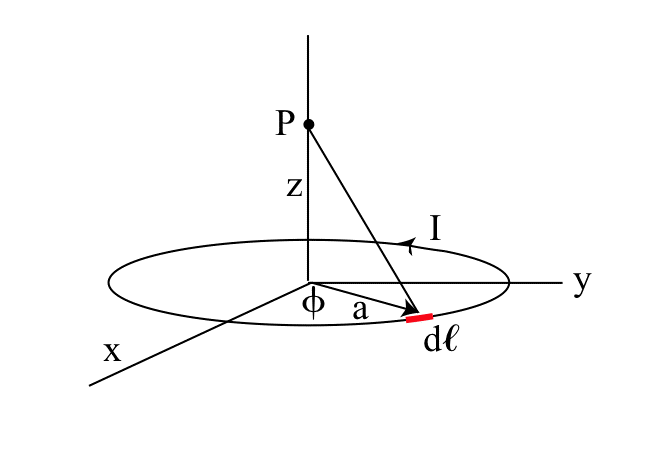A typical exercise while introducing the Biot-Savart Law is to calculate the magnetic field caused by a circular current loop at a point P located in its central axis, as shown in the following figure:

The result is well known:
$$\mathbf{B} = \dfrac{\mu_0 I a^2}{2(a^2+z^2)^{3/2}} \mathbf{\hat{k}}$$
My goal now is to find this magnetic field using Ampère's Law, so what Amperian loop you recommend me to use in order to apply this Law?
